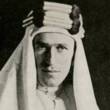Ibn Saud: the desert warrior who created the kingdom of Saudi Arabia
Description
More Details
Also in this Series
Published Reviews
Booklist Review
The Kingdom of Saudi Arabia presides over the holiest cities and shrines of Islam and, for the foreseeable future, will continue to be the world's largest exporter of petroleum. Obviously, its stability is essential to the vitality of the world economy. Yet that stability, based on the rule of a single family, is far from assured. Ibn Saud, patriarch of the family and creator of the nation, was an unlikely founding father, as this engrossing and exciting biography reveals. He sprang from a marginalized clan and was frequently on the run from tribal enemies. Perhaps the trials of his youth steeled him, since he quickly displayed an indomitable will and expertise in desert warfare. Once in power, Saud, despite his ignorance of the outside world, displayed skill and cunning in dealing with the reigning world powers. Darlow and Bray convey the essence of the man as well as the stark, unforgiving landscape that he mastered while forging a nation.--Freeman, Jay Copyright 2010 Booklist
Publisher's Weekly Review
The history of the modern Kingdom of Saudi Arabia parallels that of its founder, Ibn Saud (1880-1953). Born to an impoverished clan of nomads embroiled in tribal politics and intent on winning back the respect his family name once commanded, he led a daring and successful dawn attack on the palace of the usurper in Riyadh. The massive wealth hidden under the desert sands transformed him overnight into one of the world's most powerful rulers. TV producer Darlow and the late Bray, a BBC Radio Drama Department staffer and award-winning translator, spent decades researching Saudi history and their enigmatic subject's place in it, and their easy familiarity with Ibn Saud's life comes across in lively prose that captures the romance and intrigue of the Arabian warrior. The authors pack each chapter with entertaining anecdotes that highlight the differentness of Ibn Saud's life. For instance, as a lunch guest of President Roosevelt, he was so impressed with the food that he "asked to be given the cook as a gift," a request the president handled with great diplomacy. All in all a successful narrative, though overlong on military exploits and personal vignettes and short on analysis of the massive changes in Arabian society. 56 b&w photos, maps. (June) (c) Copyright PWxyz, LLC. All rights reserved.
Kirkus Book Review
An entertainingly exhaustive, though imperfect, biography of an inscrutable monarch. Few countries were changed as completely and irrevocably over the course of the 20th century as Saudi Arabia, and no leader shaped his country as thoroughly as did Ibn Saud (18761973). Husband to at least 20 women and father of "at least 45 sons and probably an even larger number of daughters"--a few of his sons have succeeded him as king--Ibn Saud began life as a Bedouin raider living in a tent and ended it as an all-powerful potentate worth billions of dollars, a transformation that resembles nothing so much as the history of his own homeland. Darlow and Bray (who died in 2010) collaborate on a comprehensive history of the only man in modern times to lend his name to a country, a rebranding that marked "the beginning of a shift from being a host of separate, often competing, tribes and regions into one coherent, centrally administered state." The authors adroitly narrate the military and political maneuvers that consumed much of Ibn Saud's attention, but the welter of detail they provide will overwhelm some readers. As Darlow and Bray chronicle the sprouting of skyscrapers and expressways in the shifting sands of one of the most traditionalist societies on earth--where even "the existence of barber shops and the practice of clapping" are controversial topics, and where women are famously treated as the property of their guardians--some of the more arcane minutia of the king's life merely clouds the picture. Ultimately, readers may feel the book is both too long and too narrowly focused. Amusing anecdotes and exotic backdrops keep readers engaged, but they do little to aid in understanding the complex society in which Ibn Saud lived.]] Copyright Kirkus Reviews, used with permission.
Booklist Reviews
The Kingdom of Saudi Arabia presides over the holiest cities and shrines of Islam and, for the foreseeable future, will continue to be the world's largest exporter of petroleum. Obviously, its stability is essential to the vitality of the world economy. Yet that stability, based on the rule of a single family, is far from assured. Ibn Saud, patriarch of the family and creator of the nation, was an unlikely founding father, as this engrossing and exciting biography reveals. He sprang from a marginalized clan and was frequently on the run from tribal enemies. Perhaps the trials of his youth steeled him, since he quickly displayed an indomitable will and expertise in desert warfare. Once in power, Saud, despite his ignorance of the outside world, displayed skill and cunning in dealing with the reigning world powers. Darlow and Bray convey the essence of the man as well as the stark, unforgiving landscape that he mastered while forging a nation. Copyright 2012 Booklist Reviews.
Publishers Weekly Reviews
The history of the modern Kingdom of Saudi Arabia parallels that of its founder, Ibn Saud (1880–1953). Born to an impoverished clan of nomads embroiled in tribal politics and intent on winning back the respect his family name once commanded, he led a daring and successful dawn attack on the palace of the usurper in Riyadh. The massive wealth hidden under the desert sands transformed him overnight into one of the world's most powerful rulers. TV producer Darlow and the late Bray, a BBC Radio Drama Department staffer and award-winning translator, spent decades researching Saudi history and their enigmatic subject's place in it, and their easy familiarity with Ibn Saud's life comes across in lively prose that captures the romance and intrigue of the Arabian warrior. The authors pack each chapter with entertaining anecdotes that highlight the differentness of Ibn Saud's life. For instance, as a lunch guest of President Roosevelt, he was so impressed with the food that he "asked to be given the cook as a gift," a request the president handled with great diplomacy. All in all a successful narrative, though overlong on military exploits and personal vignettes and short on analysis of the massive changes in Arabian society. 56 b&w photos, maps. (June)
[Page ]. Copyright 2012 PWxyz LLC






























